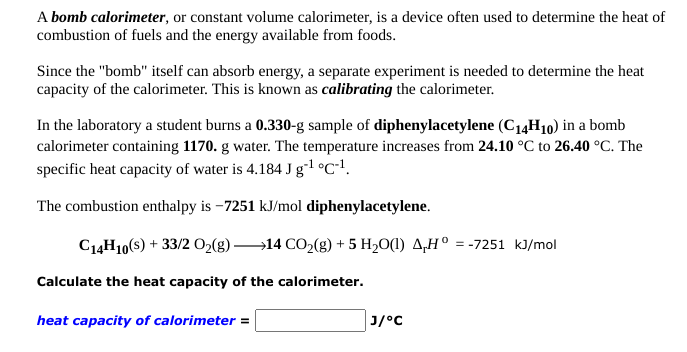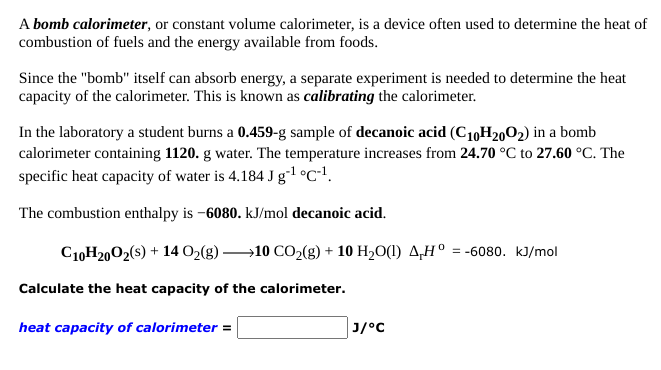A bomb calorimeter, or constant volume calorimeter, is a device often used to determine the heat of combustion of fuels and the energy available from foods. Since the "bomb" itself can absorb energy, a separate experiment is needed to determine the heat capacity of the calorimeter. This is known as calibrating the calorimeter. In the laboratory a student burns a 0.330-g sample of diphenylacetylene (C14H10) in a bomb calorimeter containing 1170. g water. The temperature increases from 24.10 °C to 26.40 °C. The specific heat capacity of water is 4.184 J g1 °C•!. The combustion enthalpy is -7251 kJ/mol diphenylacetylene. C14H10(s) + 33/2 O2(g) →14 CO2(g) + 5 H2O(1) A,H° = -7251 kJ/mol Calculate the heat capacity of the calorimeter. heat capacity of calorimeter = J/°C
Thermochemistry
Thermochemistry can be considered as a branch of thermodynamics that deals with the connections between warmth, work, and various types of energy, formed because of different synthetic and actual cycles. Thermochemistry describes the energy changes that occur as a result of reactions or chemical changes in a substance.
Exergonic Reaction
The term exergonic is derived from the Greek word in which ‘ergon’ means work and exergonic means ‘work outside’. Exergonic reactions releases work energy. Exergonic reactions are different from exothermic reactions, the one that releases only heat energy during the course of the reaction. So, exothermic reaction is one type of exergonic reaction. Exergonic reaction releases work energy in different forms like heat, light or sound. For example, a glow stick releases light making that an exergonic reaction and not an exothermic reaction since no heat is released. Even endothermic reactions at very high temperature are exergonic.


Trending now
This is a popular solution!
Step by step
Solved in 3 steps









